Albert Herring by the Melbourne Conservatorium of Music: review
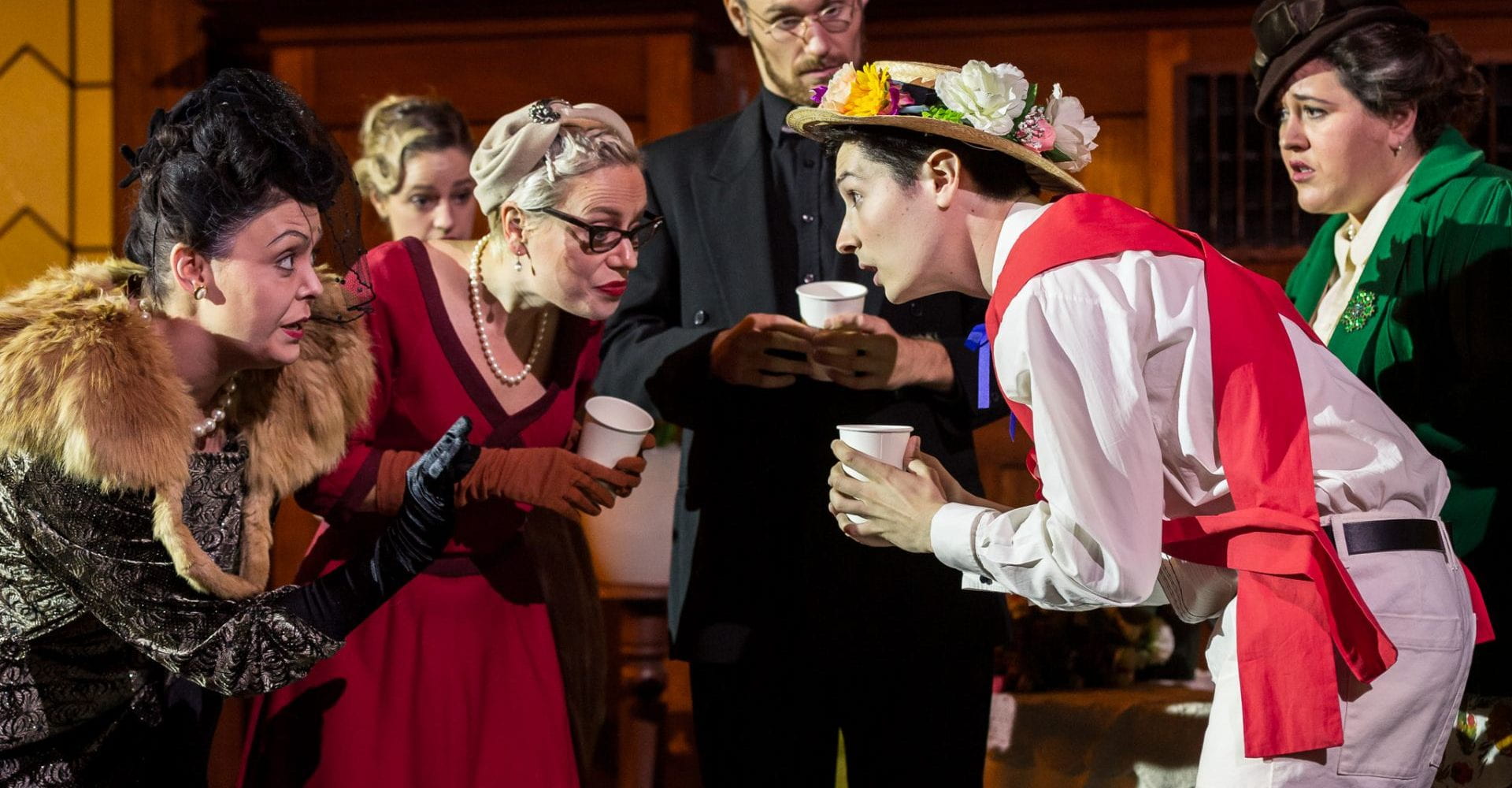
The University of Melbourne’s new Master of Music (Opera Performance) proved its mettle in this fully-staged operatic production of Britten’s classic opera.
By Peter Tregear, Honorary Research Fellow at the Melbourne Conservatorium of Music
The Melbourne Conservatorium of Music’s new MMus Degree in Opera Performance has established itself in the most appropriate way possible by mounting a fully-staged operatic production. In all, five performances were given of Benjamin Britten’s Albert Herring, the season opening at the Hawthorn Arts Centre (29–31 March), and subsequently touring to the Castlemaine Town Hall (6 April) and St John’s Church, Flinders (7 April).
Almost the entire cast were enrolees in the new program, the majority drawn from the undergraduate program at the Conservatorium, with several more coming from Adelaide, Perth and Queensland.
Choosing stage repertoire for developing voices can be tricky, but Albert Herring was conceived from the outset as a chamber work that Britten could use to help establish his English Opera Group in 1947. Thus, it does not call for especially large voices to sing over a similarly large orchestra. Moreover, it is a genuine ensemble piece, providing substantial roles for a sizeable number of singers. And many of the characters they are asked to play are as young, or even younger than they are likely to be themselves.
In all other respects, however, Albert Herring is no student piece: it is now firmly established in the operatic canon and the musical demands it makes on singers and instrumentalists alike are considerable.
Set in the imaginary village of Loxford in East Sussex, it is an adaptation by Eric Crozier of a story by Guy de Maupassant (Le Rosier de Madame Husson), first published in 1887, which tells of the fall into dissolution of a village simpleton when he is unexpectedly crowned “May King”. Rather than embodying the professed virtues that his unexpected new status celebrated, he uses the accompanying cash reward to live it up in Paris.
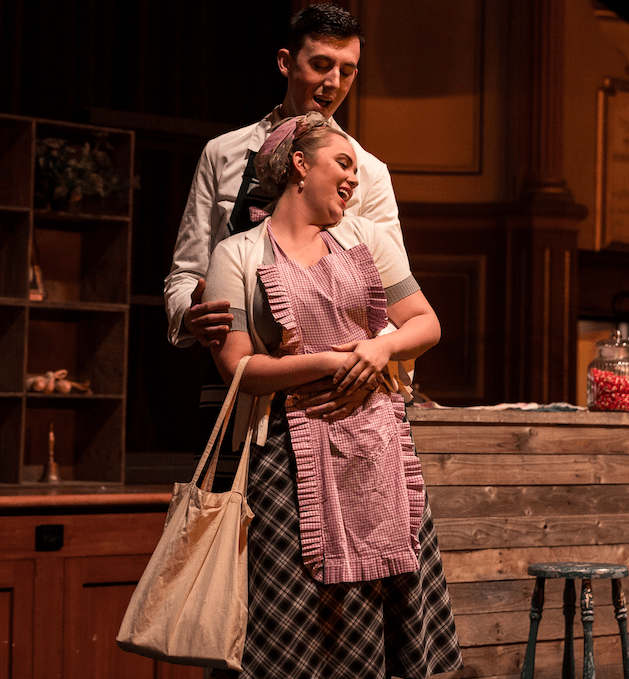
In Crozier’s version, Madame Husson becomes the autocratic aristocrat Lady Billows set on promoting chastity in Loxford. When no suitable “May Queen” can be found, she is convinced instead to choose one Albert Herring, the timid son of a local Greengrocer. In a breakthrough moment of self-assertion, if not self-definition (which yields from Britten a very fine aria indeed), Herring decides to break away from the control of both Lady Billows and his domineering mother and use the money he has been given to escape for a “night on the town” and taste the very pleasures both had sought to suppress.
Albert Herring thus is able to explore themes of lost innocence, class hypocrisy, Victorian morality, and the pleasures and pains of coming of age. Crozier and Britten provide a libretto and score of appropriate levity and wit, but also, when required, depth and pathos.
At the time of its composition Britain was only just emerging from the trauma of five years of devastating war and austerity and Albert Herring also stands as both a paean and a critique of English village life that was fast disappearing (there is thus something indeed of the feel of an Ealing comedy or, more recently, Midsomer Murders to Albert Herring—albeit happily without the murders, and with more pointed social observations).
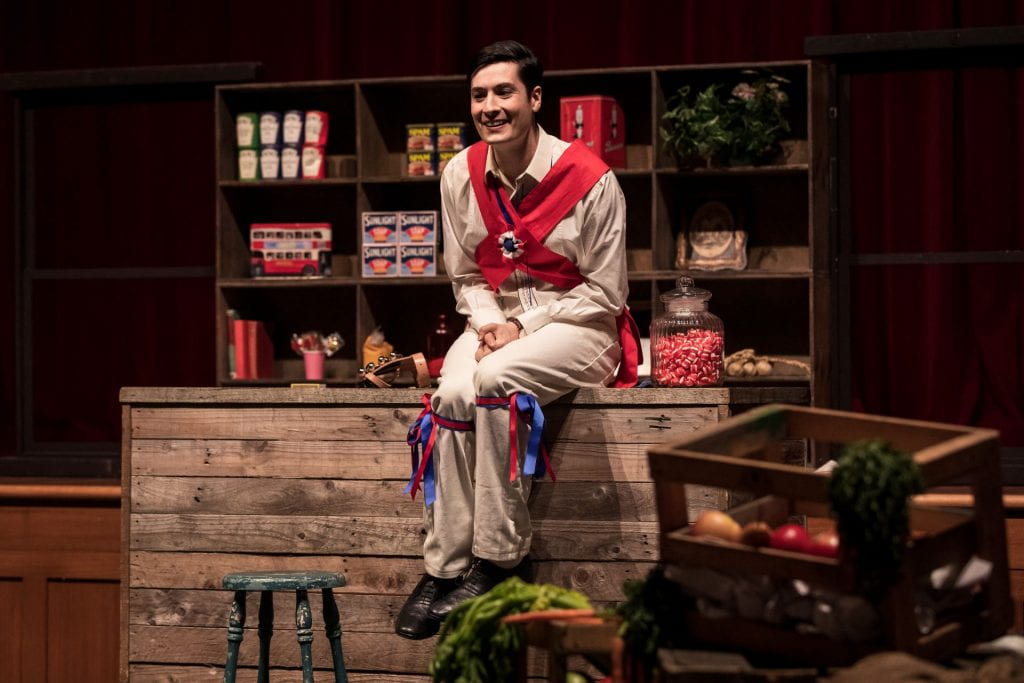
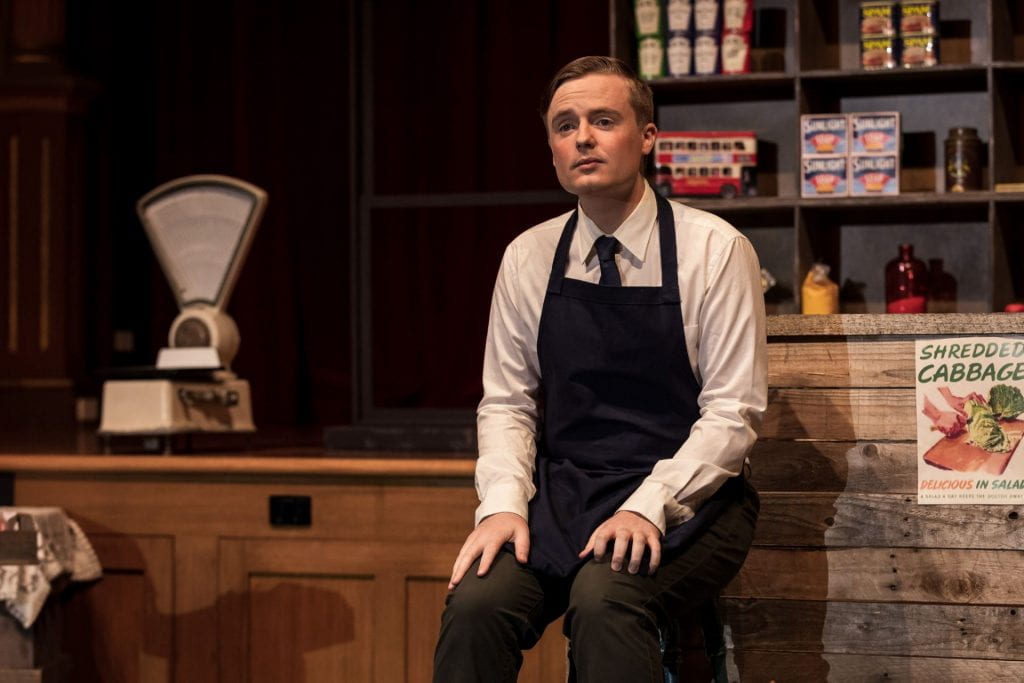
Any producing of Albert Herring first and foremost stands or falls on the vocal and dramatic ability of the tenor cast as Herring himself and this production was blessed with two fine young singers, Louis Hurley and Alastair Cooper-Golec, who were each able to traverse the musical and emotional terrain in their own way with considerable skill and emotional conviction.
The other stand-out cast members were Darcy Carroll and Chloe Harris as Albert’s friends and romancing couple Sid and Nancy (names that now unavoidably evoke a very different social and musical era that was soon to come …). Sid and Nancy are arguably the most mature and richly-drawn music-dramatic characters on stage; and both singers inhabited their roles with impressive confidence, emotional intelligence, and vocal surety.
Australian-born international Britten expert Paul Kildea, now an Honorary Fellow of the Melbourne Conservatorium of Music, conducted the chamber orchestra of Conservatorium students with both the authority and conviction one might expect from someone who knows both the score and the composer better that most (Kildea is also the author of an acclaimed biography of the composer).
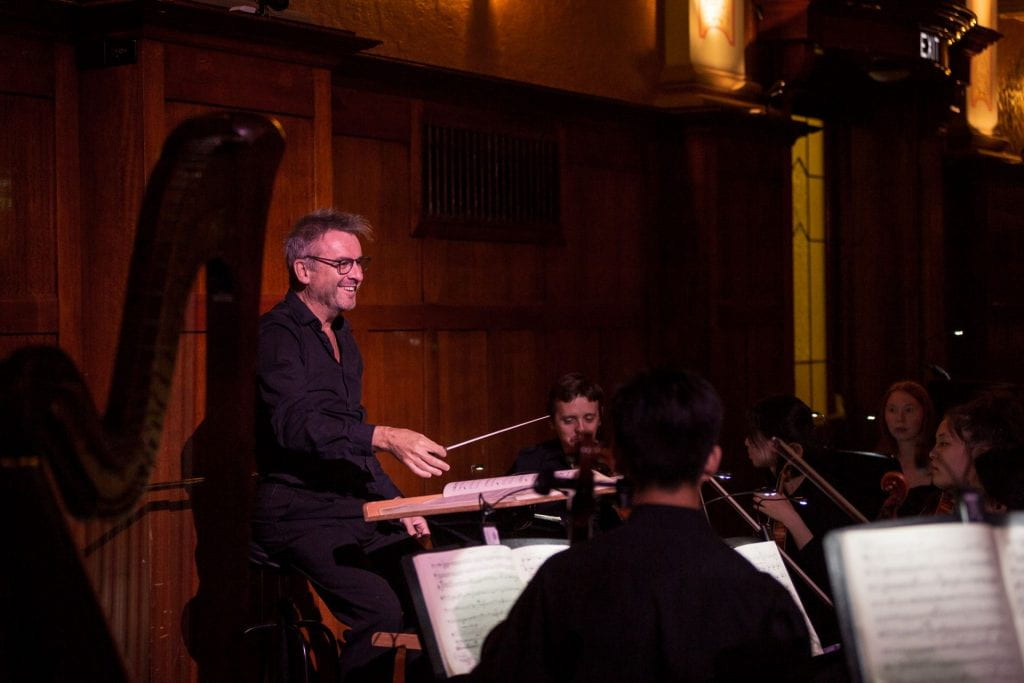
Tom Griffiths (piano) and Yiang Shan Sng (percussion) were an excellent substitute for the full orchestra when it came to the touring performances at Castlemaine and Flinders. It was testament not only to their artistry but also to the underlying strength of Professor Jane Davidson’s direction and Matthew Adey’s designs (and ultimately to the opera itself) that this production more than survived its relocation from the floor of the Hawthorn Town Hall to these new spaces.
Indeed, it was able to draw out dramatic and music detail that can easily get lost in larger settings. Full credit to the young cast, too, for being able to adapt their staging quickly and efficiently, and also for breaking the so-called “fourth wall” and engaging directly with the audience in the May Day Festival scene in Act II.
Overall this production augurs well indeed for the success of the MMus degree program it heralds. And should productions like this become an annual feature, they will also be making a substantial, and very welcome, contribution to operatic culture in Victoria.
Associate Professor Peter Tregear is an Honorary Research Fellow at the Melbourne Conservatorium of Music, University of Melbourne.